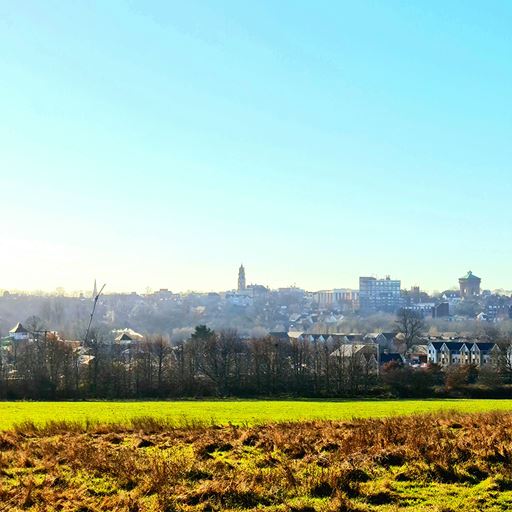New report highlights importance of affordable housing, social security and libraries to Colchester residents
-
Date
Wed 25 May 22

A new report published by the Human Rights Centre at the University of Essex, has identified some of the key issues which have an impact on the human rights of people who live in and near Colchester.
The study, Poverty and Social Rights in Essex, focuses on housing, social security, food banks, child poverty, and access to libraries, and shows what could be done to make sure that everyone has an adequate standard of living.
It looks at each of these areas from a local perspective, as well as a national one, highlighting the need for more affordable housing and for public libraries across Essex to keep their doors open and continue being run by Essex County Council funded staff.
The University’s Human Rights Centre is world-renowned and has impact nationally and internationally, but also recognises the importance of looking at the human rights issues on our doorstep.
The report, produced by Dr Koldo Casla and Lyle Barker from the Human Rights Centre and the School of Law, is part of a project called Human Rights Local, which aims to make human rights relevant where they matter the most, close to people’s homes and lives.
Dr Casla, who leads the Human Rights Local project, said: “By looking at the state of social rights in Essex, this report focuses on the rights that people value the most in their daily lives, and in the place that matters the most to them, in their local community.
“Public authorities must make use of their available resources to fulfil all human rights for all. And this includes, of course, UK Government, but also Colchester Borough Council and Essex County Council.
“This report shows that human rights are for everyone, and that they are not an abstract notion or a concern only for other people in faraway countries.”
Campaigners from the Save Our Libraries Essex (SOLE) group have welcomed the recognition the report brings to the importance of libraries in the county.
Andrew Coburn and Liz Miles said: “SOLE is pleased that the work of campaigners across the county has been included in this report, especially as without the efforts of SOLE campaigners, the Essex Libraries service would have been demolished in many parts of the county, and communities would have lost access to books, computer services and other professional library services.
“The people of Essex recognised how everyone has a right to be able to access a public library. SOLE’s campaigners will continue to seek to protect the service from more cuts.”
The study – which brings together research as well as interviews with representatives and officials from Colchester Borough Council (CBC), local community groups, local charities and non-profit organisations and academics – revealed the following:
Housing: For too many people in Colchester, housing remains unaffordable in the private rental sector and inaccessible in the public sector. The authors recommend that Colchester Borough Homes and CBC should build and buy more social/council housing so that individuals and households at greater risk of harm, disadvantage and discrimination are not living in unsafe, over-crowded or unfit housing for extended periods. They also suggest that CBC should make sure emergency and temporary accommodation is temporary and learn from best practice to avoid the use of Bed and Breakfast style accommodation.
Food poverty: The report recognises that food banks are a symptom of a deeper problem and not a solution, but recommends that both CBC and Essex County Council should use their maximum available resources and provide as much funding as possible to Colchester Foodbank and local food charities. It is estimated that 20,000 to 25,000 people will use the Colchester Foodbank in 2022.
Public libraries: Public libraries play a key role in facilitating access to culture and information and promoting human rights without discrimination. A reduction in the services libraries provide would be a step backwards. ECC should maintain its commitment to keep all Essex libraries open and run by ECC funded staff. The report shows the success the SOLE campaign had in 2018/19. However, SOLE campaigners have recently expressed concerns over future plans for libraries.
Social security: A UK social security system that supports those at greater risk of harm, disadvantage and discrimination is needed now more than ever due to the pandemic, an unaffordable rental market, soaring energy prices and the overall spiralling of the cost of living. The UK Government should reinstate the £20 a week uplift on Universal Credit, and apply it to legacy benefits, to reduce and alleviate poverty, and raise benefits by the consumer prices index to meaningfully address the cost-of-living crisis.
A shorter version of this report will be submitted to the UN Committee on Economic, Social and Cultural Rights for their forthcoming review of the UK’s compliance with the International Covenant on Economic, Social and Cultural Rights, due to take place between 2022 and 2024.
.jpg?mh=500&mw=500&hash=6568B6C9CCF5290A596BEF6678B6AD0E)



